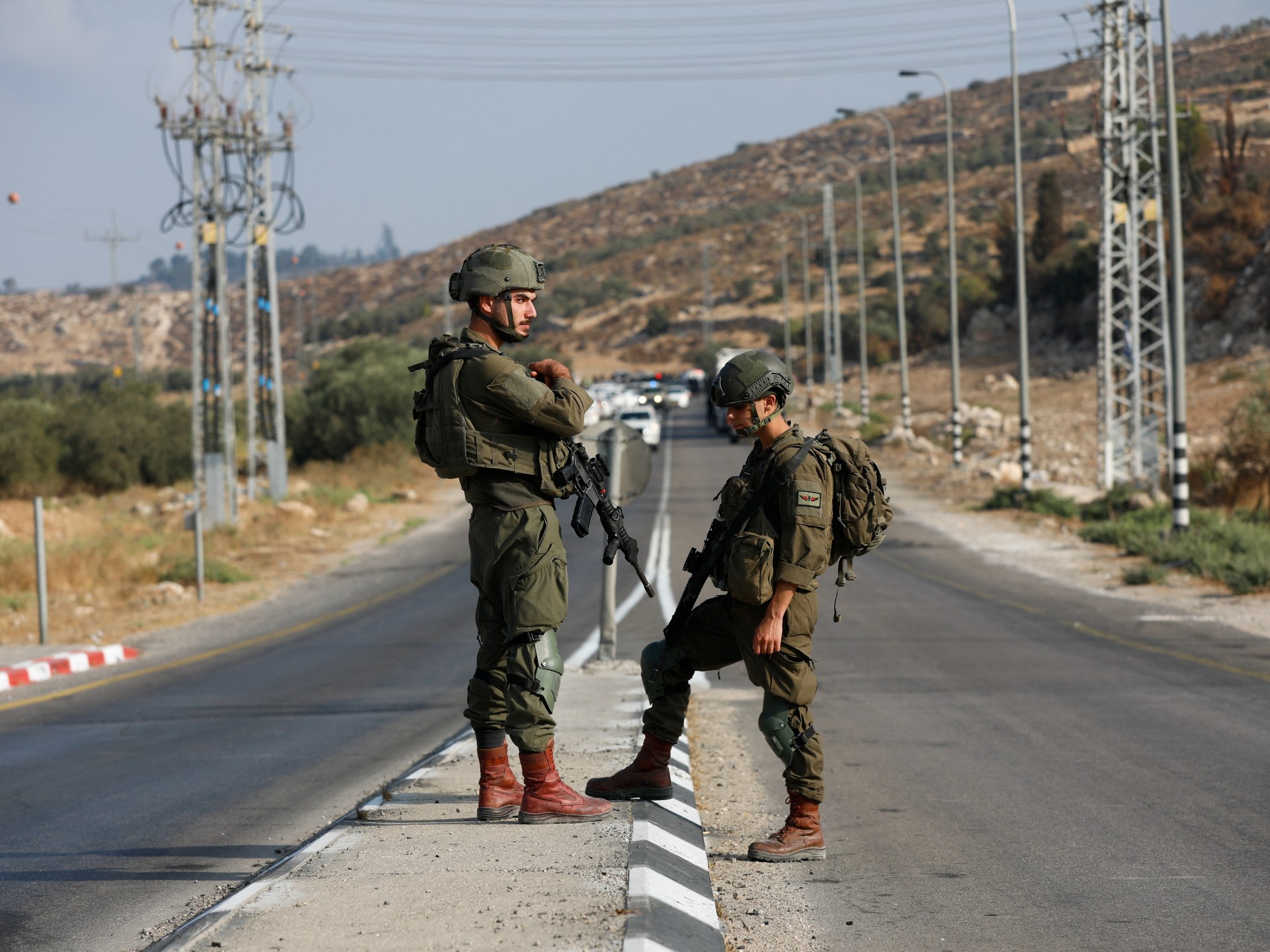Israeli soldiers and settlers have harassed a Palestinian activist featured in a recent BBC documentary that has received praise for shedding light on the plight of Palestinians in the occupied West Bank.
As the world’s attention has been fixed on Israel’s 18-month war on Gaza, settler attacks against Palestinians in the West Bank and occupied East Jerusalem have spiked, forcing Palestinians to flee their homes. A lack of Israeli police action has further emboldened settlers, who cite the Torah in claiming rights over Palestinian lands.
Issa Amro, who was featured in The Settlers documentary made by British-American journalist and broadcaster Louis Theroux, released footage online showing how armed soldiers and settlers raided his house in Hebron in the occupied West Bank.
Amro said police also threatened him with arrest and told him not to file a complaint in what he said is another instance of apartheid imposed by Israel in the West Bank. Rights groups, including Human Rights Watch and Amnesty International, have accused Israel of practising apartheid in occupied territory.
Amro added on Sunday that the Israeli settlers who attacked him a day earlier told him United States President Donald Trump backed them. The settlers felt “emboldened because of the Trump administration’s blind support”, the activist said.
Theroux said he and his team have remained in regular contact with Amro.
. @Issaamro who featured in The Settlers has posted videos of his latest harassment by settlers and soldiers. Our team has been in regular contact with him since the documentary and over the last 24 hours. We are continuing to monitor the situation. https://t.co/asEWKkVX5h
— Louis Theroux (@louistheroux) May 4, 2025
The BBC documentary, a follow-up to Theroux’s 2012 film The Ultra Zionists, reflects on how the situation has evolved in occupied Palestinian territory.
While conducting interviews with Palestinian and Israeli figures, the documentary explored how the settler population has grown significantly and how new military outposts and Israeli infrastructure have expanded across Palestinian territories, often with direct state support.
It delves into the religious and ideological motivations behind the Israeli expansion, which has led to mass displacement of Palestinians and violent clashes, and it questions the legality and morality of the occupation as courts rule that it undermines international laws and norms.
“You bring Jewish families [to the occupied West Bank], you live Jewish life, and this will bring light instead of darkness. And this is how the state of Israel was established, and this is what we want to do in Gaza,” Daniella Weiss, a key member of the Israeli settler movement for decades, says in the documentary.
Weiss, who has enjoyed support from a number of Israeli rabbis as well, said Israeli Prime Minister Benjamin Netanyahu is “happy” about the settler expansion. Netanyahu has opposed the Palestinian sovereignty over Gaza and occupied West Bank and East Jerusalem.
Settlers are Israeli citizens who live on private Palestinian land in the West Bank and East Jerusalem. They now number more than 700,000. All Israeli settlements are considered illegal under international law.
Settlements and their expansions are seen as the biggest hurdle in the realisation of a sovereign and independent Palestinian state living side by side with Israel.
The United Nations General Assembly last year called on Israel to end its occupation of Palestinian territory. This came months after the International Court of Justice (ICJ) ruled that the Israeli presence in Palestinian territory is ‘”unlawful”.
Theroux himself was harassed as well when making part of the documentary in Hebron when Israeli soldiers approached him and tried to make him leave the area.
The harassment of Amro comes shortly after Hamdan Ballal, the Palestinian co-director of the Oscar-winning documentary No Other Land, was attacked by Israeli settlers in his home in the West Bank village of Susya.
Armed and masked settlers vandalised his home and vehicle in late March and injured Ballal. While receiving treatment in an ambulance, Israeli soldiers blindfolded and arrested the filmmaker, who was later released without charge.
Like the harassment of Amro on Saturday, that attack was also seen as retaliation for the documentary’s international acclaim and its efforts to show the struggles of Palestinians in the West Bank.
The incidents have also further highlighted the dangers faced by journalists and filmmakers under Israeli occupation at a time when Israel has killed more than 200 media workers in the Gaza Strip.
